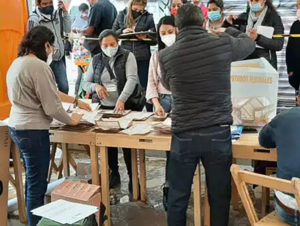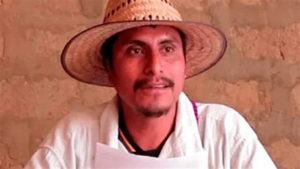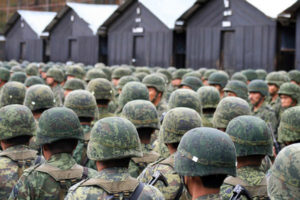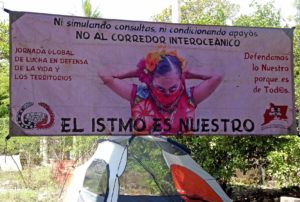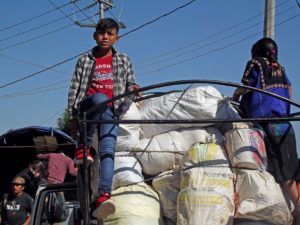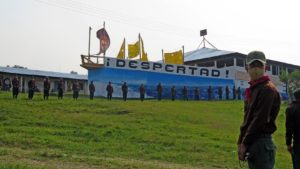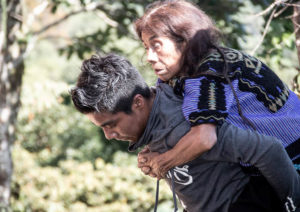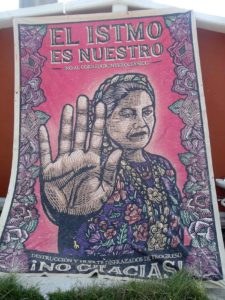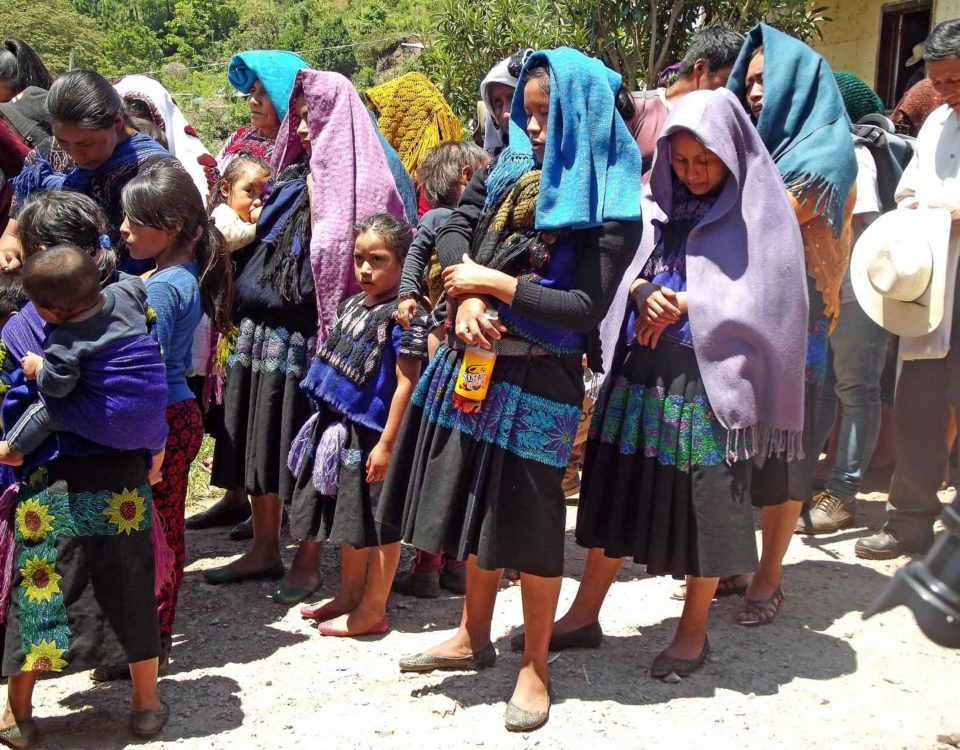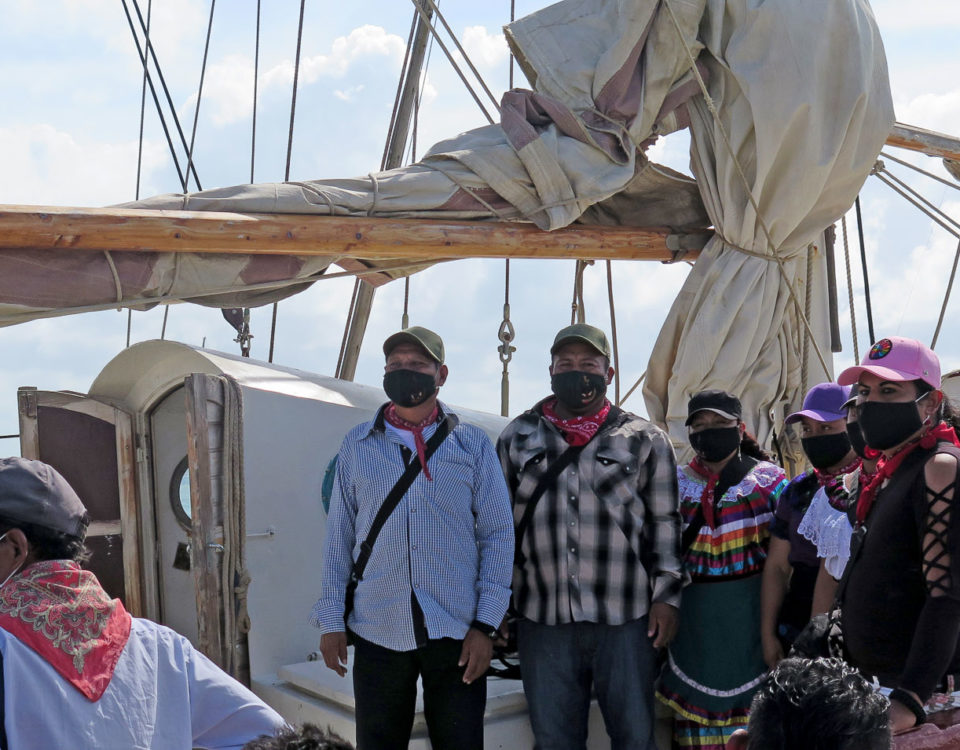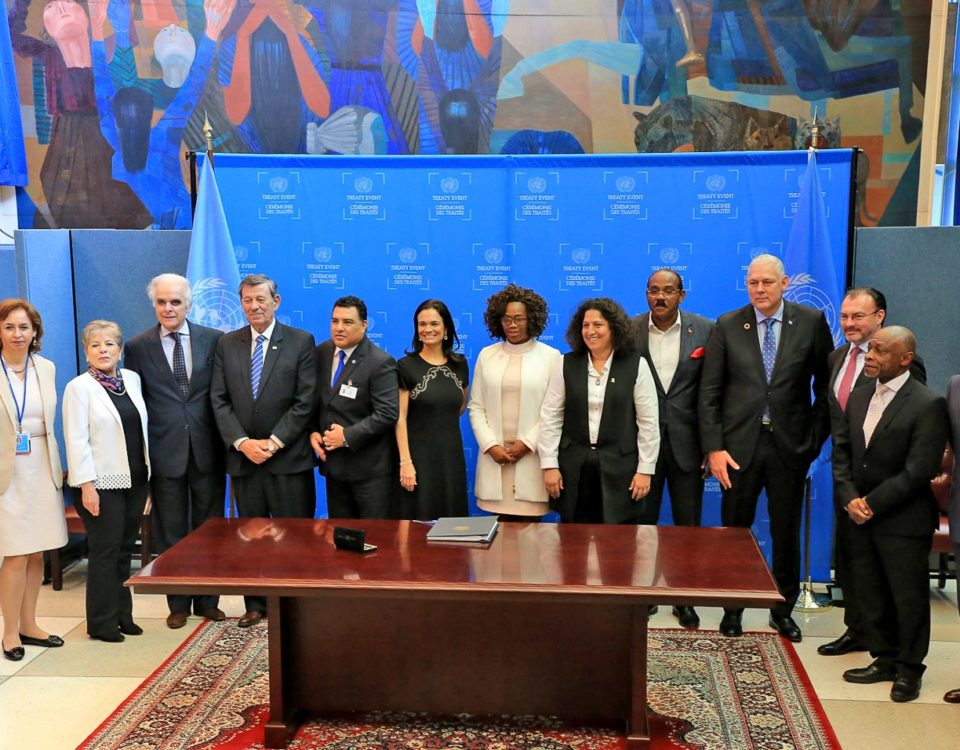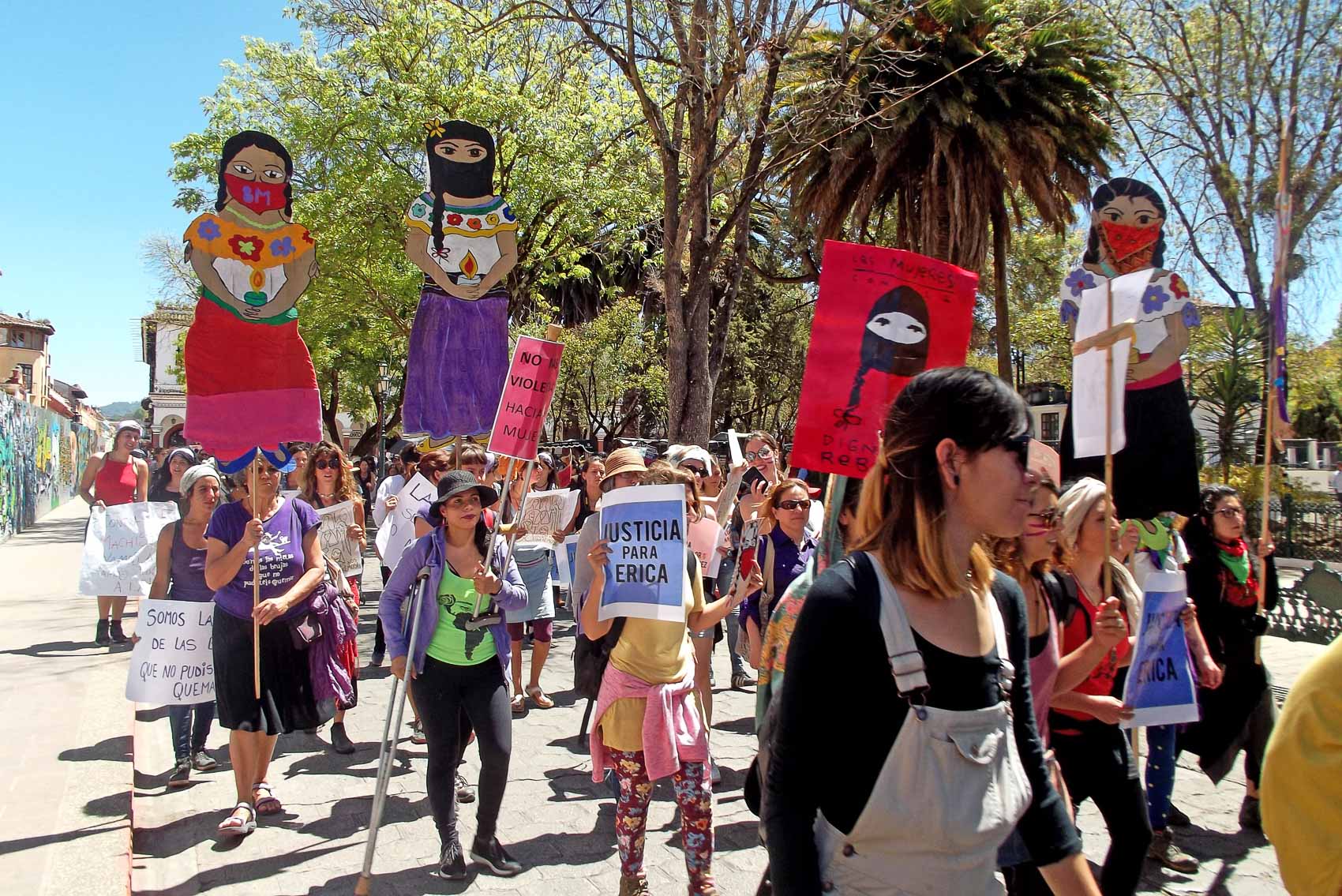
SIPAZ Activities (mid-February to mid-May, 2021)
09/06/2021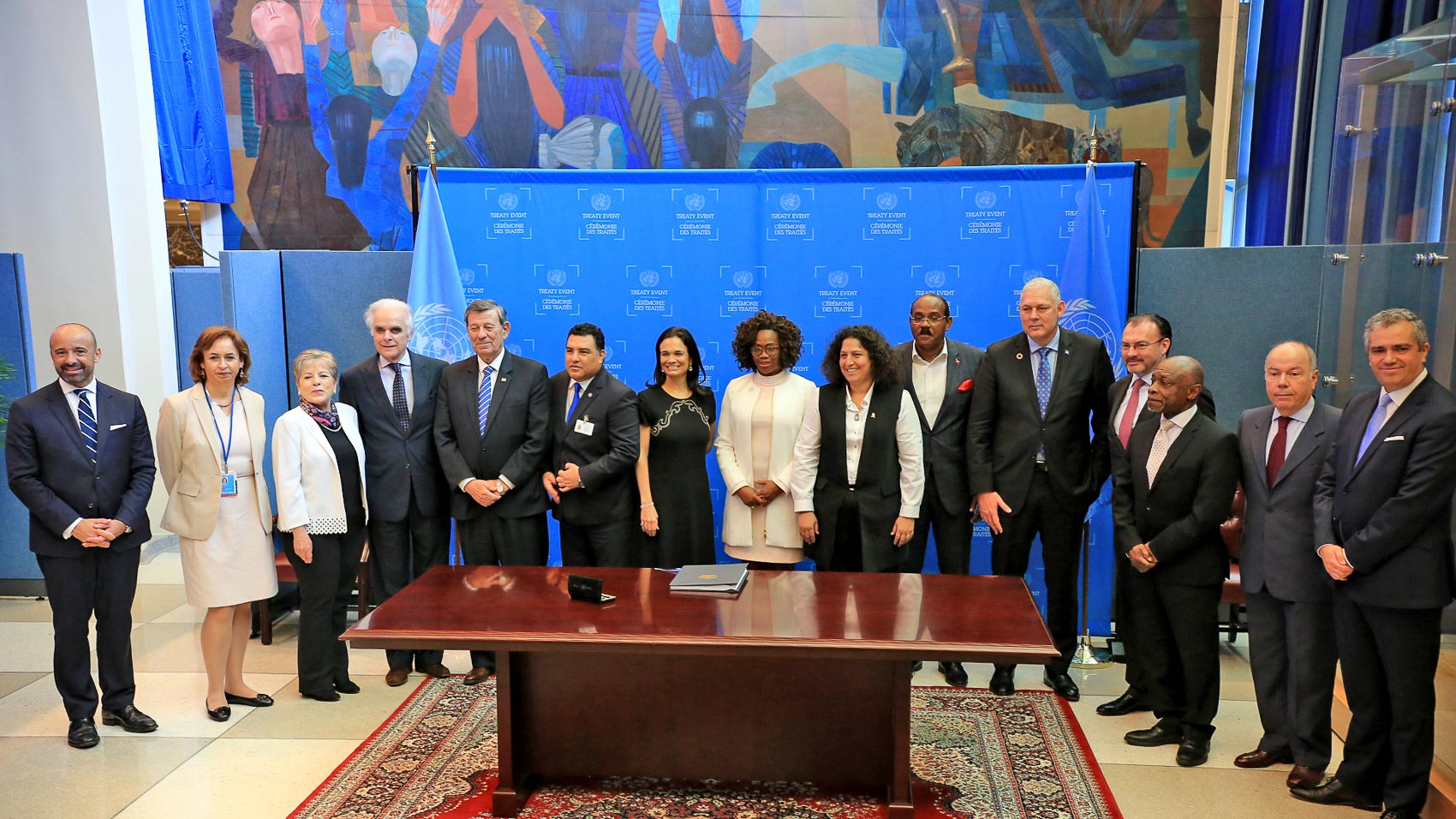
FOCUS: Escazu in the Mexican Environmental Context
03/10/2021
Mexico held elections on June 6th, which were estimated to be the biggest in the country’s history, since more than 20,000 popularly elected positions were contested; among them 500 members of the Chamber of Deputies, the governments of 15 states and thousands of positions in local congresses and city councils.
According to data from the consulting firm Etellekt, between September 7th, 2020 and June 5th of this year, cases of political violence were registered in 525 municipalities and 910 aggressions of different kinds were counted (from threats, to attacks, kidnappings and homicides). In addition to the 91 politicians who were assassinated, 14 collaborators and 40 family members also lost their lives.
To be sure, these elections were “mid-term”, coinciding with the middle of the administration of Andres Manuel Lopez Obrador (AMLO), so there was a strong dispute about the continuity of his project known as the Fourth Transformation (4T), between the different political and economic sectors. Another element to highlight is the polarization prior to the elections that was exacerbated by the polarizing statements of the president, to the extent that the National Electoral Institute (INE) had to ask him to refrain from broadcasting government propaganda and expressions of electoral content in his morning conferences until the day of the vote. Finally, “the drug cartels actively participated in the current elections to impose or veto state and municipal positions. So, in vast regions of the country the votes this Sunday 6th involve not only the regrouping of political forces, but also criminals”, Proceso Magazine reported.
Election results: new balance of power
On June 6th, the participation was 52.6%. In the Chamber of Deputies, the ruling National Regeneration Movement (MORENA) lost the absolute majority, although it continues to be the party that will maintain the greatest representation. That means, however, that it will be left with at least 50 fewer deputies than after the 2018 elections. MORENA will be able to seek an absolute majority with its allies, the Green Ecologist Party of Mexico (PVEM), which quadrupled its representatives, or the Labor Party. Although MORENA and its allies will maintain the legislative whip, they will need 30 opposition deputies to pass constitutional initiatives that require a qualified majority.
In terms of governorships, 15 of the 32 states of the Federation voted. MORENA managed to win 11 of them. The big loser was the Institutional Revolutionary Party (PRI), which until now governed eight of the 15 positions at stake, as it will not retain any.
Regarding municipalities, the results point to much more variety, although in various parts of the country MORENA achieved a certain prevalence. In Mexico City, a territory that has been dominated by the left since it first had its own rulers 24 years ago, MORENA fell back (it lost one million votes compared to 2018). Although the idea of the punishment vote was considered, the fact is that the electoral campaign did not mobilize voters. The opposition lost almost 900,000 votes compared to those it got in 2018.
Elections quickly followed by referendum: non-binding results
The Zapatista Army of National Liberation (EZLN) called for participation in the popular consultation scheduled for August 1st, in order to enable the creation of a commission for truth and justice. It indicated that it would seek a “yes” to the question of whether a process of clarification of the decisions of politicians in the past should be undertaken.
According to the National Electoral Institute (INE), only 7.11% of the electorate participated. 97.7% voted in favor. The results will be delivered to the Supreme Court of Justice of the Nation, which will determine what steps to take. For now, the consultation will not be binding, since the 40% participation required by the Constitution was not reached. However, both AMLO and the INE considered that it was a robust, professional and inclusive exercise in participatory democracy. Lopez Obrador stressed that the possibility of trials against politicians from the past is not ruled out “as long as there is evidence and reasons.”
For his part, Sub-commander Galeano pointed out that “the INE did not comply in many places with translating the question into Mayan languages, nor did it explain what it was about and, in several places, only dropped off the ballot boxes, without explaining to the inhabitants what are they for.” From civil society, Jacobo Dayan declared that this exercise was not enough “in a country with 90 thousand disappeared people, 300 thousand people murdered and more than 30 thousand people tortured, the country is no longer for symbolic justice.”
Human rights defenders and journalists: sustained vulnerability
In July, the Protection Mechanism for Human Rights Defenders and Journalists of the Ministry of the Interior reported that 68 human rights defenders and 43 journalists have been murdered during the AMLO government. Mexico continues to be one of the most dangerous countries for defenders and journalists.
In this context, AMLO inaugurated the section “Who is who in the lies of the week” in his morning press conferences in which he will present articles that, in his opinion, are fake news. The Inter-American Press Association stated that “in the case of Mexico, one of the countries with the highest risk for the exercise of journalism, the direct speech of the Presidency with insults against journalists and the media is doubly dangerous, a type of aggression that, as experience indicates, tends to degenerate into acts of violence.”
Another concern: increasing militarization
In June, the Miguel Agustin Pro Juarez Human Rights Center (Centro ProDH) presented the report “Military Power, the National Guard and the Risks of Renewed Military Protagonism” that highlights the intense militarization of recent decades. It recalls “that a process of gradual demilitarization of public life is urgently needed to make security policies more efficient, to reduce human rights violations and to redirect the civil-military relationship in the logic of a democracy.”
It highlights that the National Guard (GN) is not a civilian security body as mandated in its constitutional creation. Instead, militarization “reached a legal depth not seen before. The legal changes are being accompanied by an extensive use of the Armed Forces for tasks other than their ordinary constitutional functions: the participation of the Army in the construction of public works and in other functions has become common during the six-year term of office.” Furthermore, in July, AMLO announced an additional budget of 50 billion pesos to consolidate the GN. He announced that there will be a constitutional reform so that it becomes part of the Secretariat of National Defense (SEDENA).
Megaprojects: object of rejection in some sectors
In May, Oaxacan communities, parts of the Assembly of Indigenous Peoples of the Isthmus in Defense of Land and Territory (APIIDTT) rejected the “simulation of indigenous consultations” to impose the installation of industrial parks in the Isthmus of Tehuantepec Interoceanic Corridor. They stated that decision-making was left in the hands of municipal and agrarian authorities, whom they held responsible for “using their public office to support the consultation processes and the dispossession of land from indigenous peoples.” The Development Program of the Tehuantepec Isthmus Corridor and the Interoceanic Train contemplate, in addition to the rehabilitation of the railways and the remodelling of the port of Salina Cruz, the construction of six development zones.
As regards the Maya Train, an investigation by El Universal newspaper identified critical information which was hidden in order to speed up the works, and which related to its route, the possible demand and the risks of the construction. It comes from reports prepared by the consulting firm Price Waterhouse Coopers at the request of the National Fund for the Promotion of Tourism (FONATUR). Potential dangers analyzed were related to: environmental problems, poor town planning, increase in predatory tourism and the transformation of ejido lands into hotels or tourist centers. FONATUR has also bypassed environmental legislation in order to begin construction, the investigation states. Finally, it is observed that some courts avoid injunctions against the megaproject, while the protected citizens feel criminalized.
Indigenous peoples’ rights: Pending reform
In August, the National Institute of Indigenous Peoples (INPI) launched an initiative to reform the Mexican Constitution on the rights of indigenous and Afro-Mexican peoples. According to the INPI, it was the result of the proposals and agreements emanating from 62 regional assemblies of the consultation process in 2019. However, it must be remembered that at the time various indigenous organizations in the country had refrained from participating, considering that they were “imposed consultations.”
In Oaxaca, Tequio Juridico A.C stated that the prior, free and informed consultation “as it is proposed, challenges the autonomy of the peoples, it does not respect it”; in addition to that, in environmental matters, it indicates “concepts limited to indigenous territories, (which) have been used to commercialize them and impose energy projects.” On the other hand, organizations such as La Montaña Tlachinollan Human Rights Center and Services and Assessment for Peace (SERAPAZ) highlighted that “advancing this reform implies paying off a historic debt” to “give way to a relationship of respect and equality between the peoples and the State.”
EZLN: Start of the “Journey for life – Europe Chapter”
In May, the maritime delegation made up of seven Zapatistas that began their “Journey for Life – Europe Chapter”, arrived in the port of Vigo (Galicia). Since that date it has had several activities both in Spain and France.
Meanwhile, in Chiapas, another Zapatista delegation that had planned to travel by plane had difficulties obtaining passports. This was denounced by Insurgent Sub-commander Galeano in a communiqué in June in which he mentions “outrageous obstacles.” 177 delegates including Sub-commander Moises are expected to travel by air in September (see Article).
CHIAPAS: Violence and more violence
During June 6th election day, 232 polling stations could not be installed in Chiapas due to agrarian conflicts or violence of a political or other nature. Previously, eleven Tsotsil parishes of the Diocese of San Cristobal de Las Casas sent federal, state and electoral authorities asking to postpone the elections in the municipality of Pantelho, also pointing out the excessive violence in Chenalho, Aldama and Huitiupan. In advance, the INE announced that, in the municipality of Venustiano Carranza, where in the previous month six people were killed due to a land dispute, 80 ballot boxes were not going to be installed. There were also several acts of violence during and after the elections in various parts of the state.
On June 6th, municipal positions of popular election, 24 deputations with a relative majority and 16 with proportional representation were elected in Chiapas. Only 50% of the population of Chiapas voted. In terms of results, MORENA won the 13 federal electoral districts and in the State Congress also maintained the majority through the “Together We Will Make History” coalition. As for mayors, the main winner was the Green Ecologist Party of Mexico (PVEM), which will increase its presence to govern 33 municipalities. MORENA will drop from 29 to 25 municipalities, although it retains the two most important cities in the state. Another big winner is the Labor Party (PT), which expanded its presence from two to 13 mayors. These results reflect a complex local power dispute in which membership in a political party does not allow for substantial analysis.
Pantelho, main hot spot
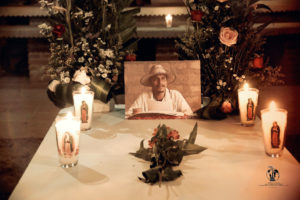
Simón Pedro Pérez, ex-president of Las Abejas and Human Rights defender murdered in Simojovel © Groupe de communication de las Abejas de Acteal
In July, the human rights defender and member of Las Abejas de Acteal Civil Society Organization, Simon Pedro Perez Lopez, was assassinated while he was in Simojovel. He was originally from the municipality of Pantelho where he worked as a catechist. He was assassinated nine days after the residents of Pantelho made a formal complaint to the Secretary of Government regarding the high violence in Tsotsil regions due to the takeover of criminal groups. Perez Lopez had been the channel to point them out.
After this murder, residents of Pantelho and Chenalho decided to expel the members of criminal groups who have killed at least 12 people in the region since March of this year. At first, the distress resulted in the forced displacement of at least 3,000 people, mainly women, children and the elderly from the municipalities of Pantelho and the neighboring part of Chenalho.
Subsequently, 69 municipal agents from the 85 communities of Pantelho, four communal commissioners, representatives of different religious denominations and between three and four thousand inhabitants, declared their position on the situation and demanded the resignation of the interim mayor, Delia Yaneth Flores Velasco, and the elected municipal president, Raquel Trujillo Morales, ex-partner of the former, both from the Party of the Democratic Revolution (PRD). They stated that “the emergence of self-defense groups in Pantelho is true, due to the presence of organized crime, the total absence of the federal and state governments, and the threats and murders.” The self-defense groups in El Machete publicly declared that “we started because we do not want more deaths” and promised that once Pantelho is free from organized crime, they will withdraw.
After several very tense weeks, in early August a first negotiating table was set up between representatives of the 86 communities and 18 neighborhoods of Pantelho with state and federal authorities. The representatives made six petitions including justice for the victims and punishment for the guilty, to be recognized as an indigenous people and to respect the appointment of the authorities by customs and traditions; also, that the current president resigns, and that the elected mayor does not assume the position. It is worth mentioning that representatives of the El Machete People’s Self-defense group did not participate in the dialogue, but only authorities from the communities and neighborhoods in Pantelho. Advancing in agreements, in mid-August, the permanent commission of the Congress of the State of Chiapas swore in the new municipal council of Pantelho, with Pedro Cortes Lopez (who was the spokesperson for the 86) as president.
The challenges of the struggle for land and territory
In May, the press conference “The Criminalization of the Struggle for Land and Territory among the Tseltal people of Chilon, Chiapas” was held. The participants demanded an end to the criminalization of community defenders of land and territory of the San Jeronimo and San Sebastian Bachajon ejidos, following the construction of a National Guard barracks, without the permission of the ejidatarios, and after the arbitrary detention of two people who participated in a protest against its presence in October last year.
Likewise, in May, those who will occupy positions in the new Community Government Council in the municipality of Chilon were presented, a structure that, for three years, has been one of the expressions of their struggle for self-determination. They acknowledged that their position “shook the interests of the de facto power,” which led to multiple intimidations, attacks, and defamations against them. Also shortly afterwards, seven councilors and one councilor of the new community government in the municipality of Sitala were appointed.
Oaxaca: State with third highest level of political violence
According to Etellekt data, Oaxaca was the third state with the most cases of political violence in the June elections. In terms of results, MORENA won 31.7% of the vote, winning several cities including the state capital. The same election day was violent in at least six municipalities with burning of ballot boxes, buying votes and intimidation, leaving one person dead, one injured and ten detainees as a result.
Outside the electoral context, in June, the Center for Justice and International Law, CEJIL, highlighted that the conditions of risk for defenders and journalists have worsened in Oaxaca in the context of the health emergency, detailing how a resurgence of femicidal violence, suspension of judicial remedies and other tools for the defense of land and territory.
In June, reporter Gustavo Sanchez Cabrera was assassinated in Santo Domingo Tehuantepec. In January, the communicator had received a threat through a telephone call from the (MORENA) municipal president of Salina Cruz, in addition to the fact that the journalist had already been the victim of an attack in 2020.
In June, Soledad Ortiz Vasquez, a member of the Committee for the Defense of the Rights of the Mixteca, received death threats. In July, the Committee for the Defense of the Rights of the Peoples of Oaxaca (CODEPO) denounced threats against Patrocinio Martinez Lopez, a Mixtec indigenous and founder of said Committee. CODEPO “actively participates in the dissemination and defense of the human rights of the peoples of Oaxaca” for which it believes that these activities are the reason for the harassment.
In July, more than 60 organizations and the Network of Community Defenders of the Peoples of Oaxaca (REDECOM) published the statement “ALARMING INCREASE OF AGGRESSIONS AGAINST DEFENDERS IN MEXICO” in which they stated that “the defense of human rights and the territories is increasingly complex against the intervention of de facto powers, caciques and organized crime in the territories and in the absence of a response from the Mexican State.”
Likewise, in July, REDECOM and the United Peoples Council for the Defense of the Rio Verde, COPUDEVER, published the statement “Six Months Demanding Justice in Paso de la Reyna” in which, almost six months after the events, they expressed that their demand for justice for their five fellow defenders who were killed, still with no response.
Land and Territory: Keep defending despite the odds
In June, the Zapotec community of San Antonino Castillo Velasco, part of the Coordinator of United Peoples for the Defense of Water (CODUPA), approved internal regulations to protect water. It had filed a lawsuit against the National Water Commission (CONAGUA). A consultation was carried out that resulted in this new regulation that provides for resistance to the entry of extractive projects into the area.
In June, more than 3,000 Zapotec community members from San Pedro Quiatoni held a march-rally in front of the Federal Judicial Power, in rejection of the mining subsidiaries of the US company Gold Resource Corp. (GRC). This is due to the slowness of the justice system to resolve the injunction they presented in 2020.
In July, the No to Mining for a Future of All Front announced that the Ministry of the Environment and Natural Resources (SEMARNAT) denied a second environmental permit that the Fortuna Silver Mines (FSM) company requested for its project “San Jose II”. It recalled that since September 2020 the Front had demanded that the federal agency “deny said permission, as for ten years, FSM has systematically violated the human right to a healthy environment.”
Guerrero: Endless violence
With a citizen participation of 52.10%, the MORENA candidate, Evelyn Salgado Pineda, obtained the governorship of the state in the June elections. She is the daughter of Felix Salgado Macedonio, who was initially the candidate of the same party, but who had to withdraw due to complaints of rape. She will be one of the few female governors in the country. She announced that she will maintain a zero-tolerance policy for corruption. Although the current governor, Hector Astudillo Flores, affirmed that the election took place in peace, Tlachinollan pointed to acts of violence in several municipalities.
Meanwhile, the human rights situation continues to be serious. In matters of concern in the emblematic case of Ayotzinapa (forced disappearance of 43 students in 2014), in June, the commander of the Ministerial Police of the Guerrero State Attorney General’s Office (FGE), Humberto Velazquez Delgado, was murdered in Iguala. The parents of the disappeared students had requested a presentation order against him, considering him the leader of the criminal group Guerreros Unidos. AMLO ruled out that there was a campaign to silence key figures in the case.
Defenders and journalists: A long list of grievances
In May, Marco Antonio Arcos Fuentes, the forest defender and commissioner of Jaleaca de Catalan, was murdered by an armed group. Last February, he had denounced the theft of wood and the entry of an armed group into Jaleaca without getting any response. The Collective Against Torture and Impunity (CCTI) declared that this homicide “reveals an alarming increase in violence against human rights and the territory defenders in the state, and the defenselessness in which they find themselves.”
In June, Julio Cesar Coctecon, commissioner of Acatempa, municipality of Tixtla, part of the Regional Coordinator of Community Authorities-Community Police (CRAC-PC) was assassinated. “The social context in which the communities and indigenous peoples currently live in the state of Guerrero is made up of enormous structural violence and profound social injustice. Human rights violations are a constant and its inhabitants bear a sense of total defenselessness and cyclical abandonment in matters of security and justice where impunity proliferates. The presence of organized crime working together with the government authorities and corruption have become a systematic practice of life”, the Committee for the Freedom of Political Prisoners in Guerrero explained.
In July, state police officers entered the home of the director of the Diario de la Tarde, Julio Zubillaga, without authorization. They took a cell phone in addition to searching the house and vehicles, says a statement from journalists in Iguala who insisted on the need for protection by federal security corporations, because “the state police have been responsible many times, not only for aggressions (…), but they have also hampered our work.”
In August, Vicente Suastegui Muñoz, a member of the Council of Ejidos and Communities Opposing La Parota Dam (CECOP), disappeared. Tlachinollan reported that, shortly before, Vicente had denounced that “members of the Secretariat of the Navy tried to enter his home in a violent manner.” It recalled how the struggle of this movement has been criminalized and “has the purpose of decimating the opposition force of CECOP.”

